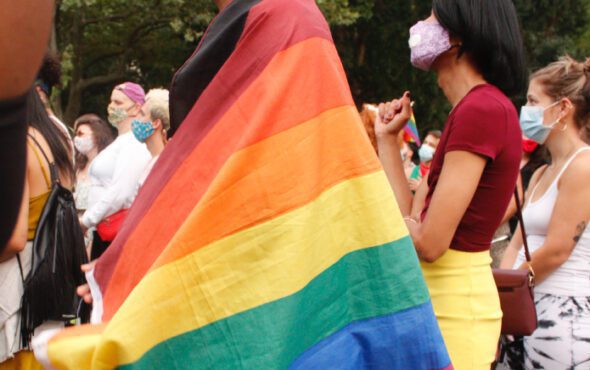
Drag events in the US have been subjected to at least 124 incidents of anti-LGBTQ+ protests and threats in 2022, according to a new report from GLAAD.
There were reports of said attacks in 47 states, with Texas and North Carolina having the highest number at 10 each, followed by eight in Illinois and six in both Tennessee and California.
The majority took place during Pride celebrations in June, with the recent mass shooting at Club Q in Colorado Springs not recorded in the data due to the motive not being formally declared when the report was released on 22 November.
There were also a notable number in September, October and November, which is believed to have been linked to anti-drag rhetoric being used in campaign ads for the midterm elections.
GLAAD noted the concerning increase in violence, highlighting the firebombing of a Tulsa doughnut shop that hosted a drag event last month.
Attacks were not limited to small cities and towns, with a number taking place in areas with higher LGBTQ+ populations, such as New York City which saw three protest incidents.
GLAAD released research findings that document at least 124 drag events targeted by anti-LGBTQ activists over the course of this year. The anti-drag attacks took place in 47 states, and showed a pattern of violence and increasing intimidation against the LGBTQ community. pic.twitter.com/Mttue13N0L
— GLAAD (@glaad) November 23, 2022
“A number of the drag events targeted by threats and protests in person were first targeted by right-wing media outlets like Fox News and the Daily Wire, and social media accounts like LibsOfTikTok,” the report stated. “The outlets and accounts often misrepresented what would occur at upcoming drag events, spinning them as harmful to children, and protests or threats would follow.”
A total of nine legislative proposals aiming to ban or restrict drag were reviewed by GLAAD, most of which were linked to extremist politicians using false rhetoric about what happens at events such as Drag Queen Story Hour to push said bills.
GLAAD’s research was predominantly conducted using news reports across all 50 states, with the LGBTQ+ advocacy group noting that it is likely more incidents occurred that were not covered.



